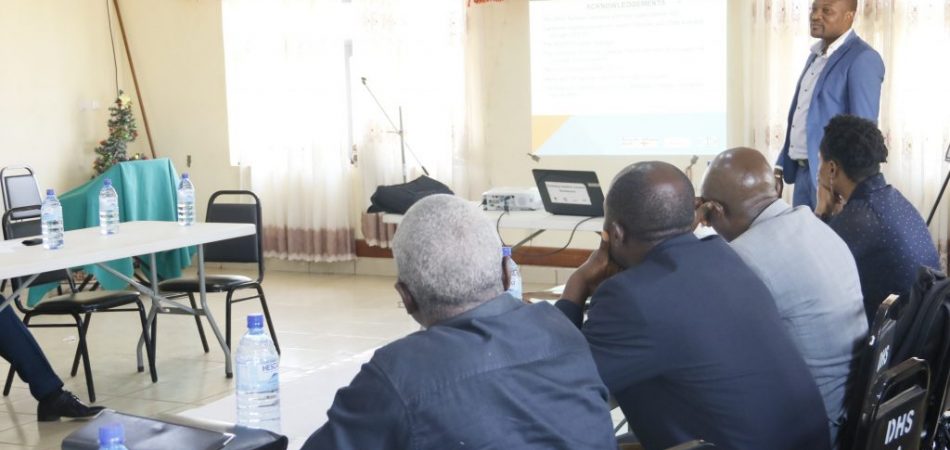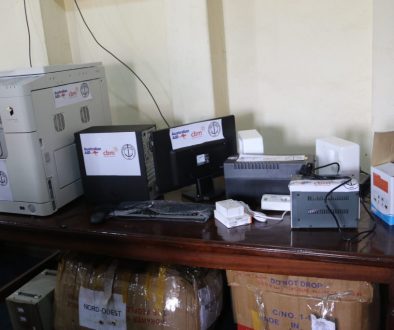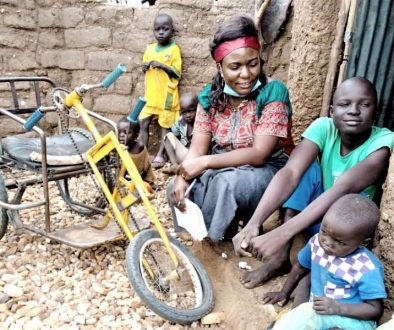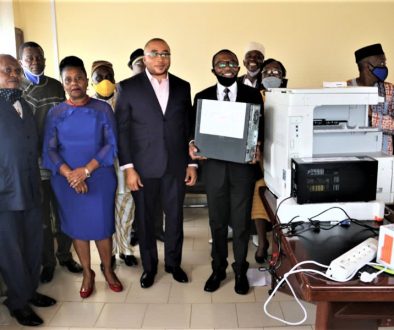GRID Network Phases out with Great Accomplishments Chronicled
The first phase of the Group for Rehabilitation (GRID) Network of the Cameroon Baptist Convention (CBC) Health Services has come to an end. During this close-out phase that took place at the Baptist Center Nkwen Bamenda, the Project Coordinator Dr. Louis Mbibeh noted that the first phase of the project which started in 2016 has 70 members made up of 7 professional groups from different programs and organizations.<!–more–>
Underlining the achievements of the Project, Dr. Louis said 30 editions of the GRID Notebook were produced and disseminated, 5 conference presentations were made, and 1 Short Stories book to create awareness on Gender-Based Violence were produced and distributed.
Ferdinand Mbiydzenyuy, CBC Health Services’ program Manager for <a href=”http://cbchealthservices.org/services/non-communicable-disease/”>Non-Communicable Diseases Prevention and Control Program</a> (NCDs-PCP) is a member of GRID and was in attendance. “Being a member of GRID and specifically in the leadership team, has added more value to my professional life given that it was a forum where people from varied professional backgrounds met and shared their different experiences and views,” submitted Ferdinand.
The impact of the GRID Network in the personal lives and on the professional careers of members was felt from the numerous testimonies of members present at the ceremony. Many members confessed that GRID Network had become an important part of their professional identity.
Despite these achievements, the GRID Network has gone through some tough challenges and has recorded a number of pitfalls over these years. Lamenting on these Challenges, Dr. Mbibeh regretted the fact that the group lacked professional development and financial strengths. “The group lacked professional development opportunities and significant poverty reigned even among professionals in the Northwest Region. Also, given that the initiative is relatively new in the region, most members and several employers did not understand the concept,” added Mbibeh
Awa Jacques Chirac, CBC Health Services’ <a href=”http://cbchealthservices.org/services/seepd-2/”>Socio-Economic Empowerment of Persons with Disabilities</a> (SEEPD) program Manager and core leader of the GRID Network, took the podium at the event to speak. While entreating all stakeholders to embrace the Network and to re-strategize on ways to continue making their dreams come true, and using CBC Health Services as an example, he emphasized the fact that development cannot be fully foreseen but rather, that it only emerges.
“For some years, <a href=”http://cbchealthservices.org/”>CBC Health Services</a> has been leading inclusive development in the Northwest Region which needed a platform to share its good practices; the creation of GRID is serving the purpose. I implore all stakeholders from different NGOs, Faith-Based Organizations and government delegations who have been involved in the network to re-strategies in other to continue making the dream grow bigger,” beseeched Awa.
On her part, Dr. Lynn Cockburn, the main brain behind the GRID Concept and a core active leader of the Network, applauded all the members and stakeholders whom as she opined, have nurtured the idea into a bigger dream.
The GRID Network has been operating successfully this far, thanks to the support and mentorship it is getting from organizations. <a href=”https://www.cbm.org/”>Christoffel-Blinden Mission</a> (CBM), <a href=”https://australianaid.org/”>Australian Aid</a> (AusAID), CBC Health Services, and the <a href=”https://www.utoronto.ca/”>University of Toronto Canada</a> are organizations that have supported the GRID Network from its birth.



